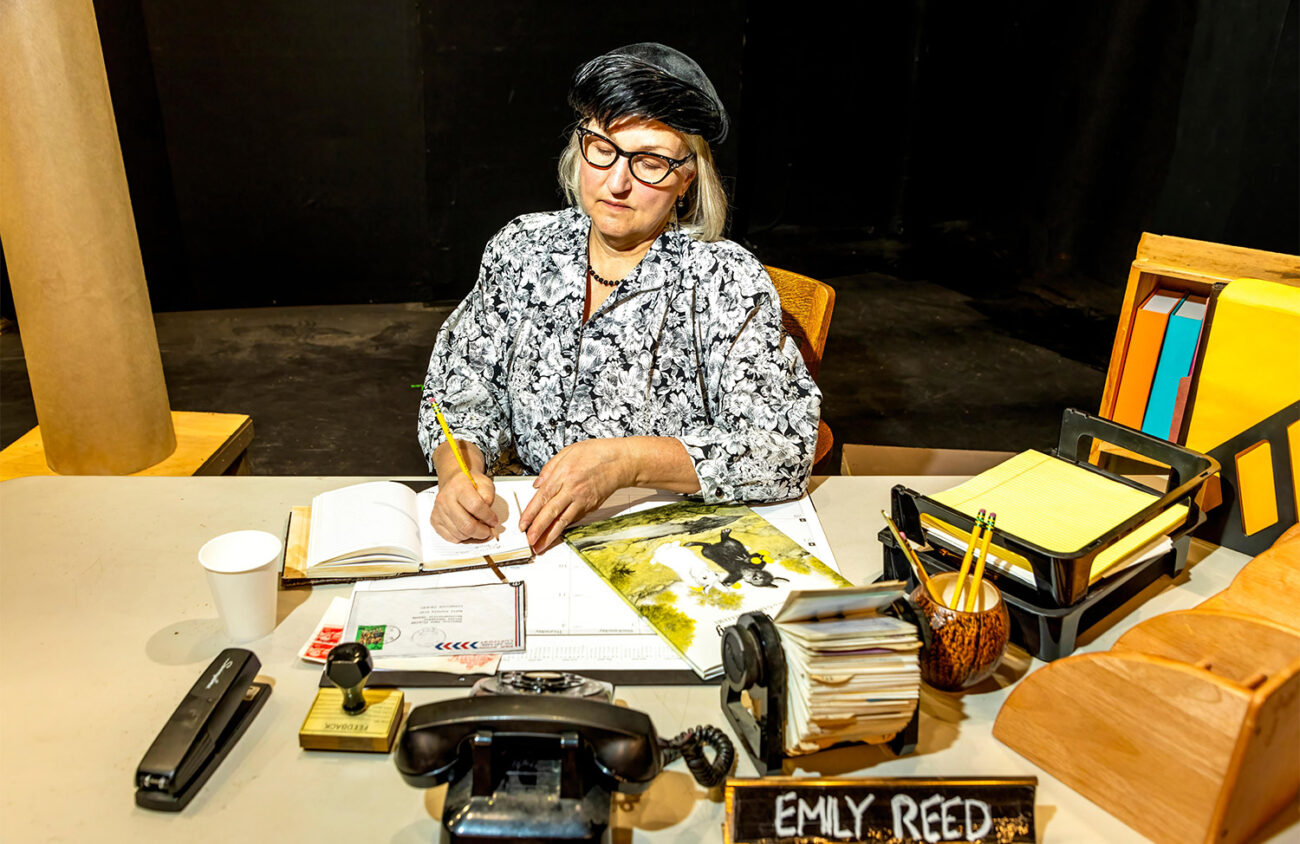The play is a love letter to reading and librarians.
Yet Alabama Story — a play by Kenneth Jones based on the true and searing reactions to a seemingly innocuous children’s book called The Rabbits’ Wedding — is so much more than that, says the play’s director, Stanley Coleman.
“It’s a play about how race and maybe the culture wars intersect, because this is just not any book,” Coleman says. “It raised the temperature of racism in America.”
He adds that after talking with Jones, Alabama Story also is “a play about storytelling as much as it’s about race and book banning.” The play begins a 10-performance run March 29 at Very Little Theatre.
The Rabbits’ Wedding is a delightful children’s book that was published in 1958, written and illustrated by Garth Williams, illustrator of Charlotte’s Web, the Little House on the Prairie series and Stuart Little, among his close to 100 illustration credits.
And it was a book that rocked the state of Alabama on the eve of the Civil Rights movement.
In the book, as recounted in the play, a black rabbit, a male, lives in a forest. He is friends with a white rabbit, a female, and he conveys to the white rabbit that he wishes her to be his friend forever. The two become close and fall in love. They marry and dance under the moonlight with other creatures in the forest on their wedding night.
“He wanted a nice story with contrast,” Coleman explains of Williams’ use of the black and white rabbits. “That was his intention.”
Enlarge

Alabama Story details the firestorm that ignites. The White Citizens Council of Montgomery, Alabama, angrily claims in 1959 that the book promotes interracial marriage in defiance of miscegenation laws (Alabama would be the last state to repeal its miscegenation laws in 2000).
The council gains an ally in the formidable State Sen. E.W. Higgins (Marty Brown), and he immediately butts heads with Emily Reed (Nancy West), the state librarian. He wants the book removed and destroyed. She fiercely defends the book’s right to take its place on a shelf. The showdown between the two is intense and public, and it should make for riveting moments on stage.
A parallel, and more private, narrative is unfolding when a Black man and a white woman, natives of Montgomery, reunite. Joshua Moore (Quinn Vasbinder) and Lilly Whitfield (Sabrina Gross) were childhood friends with fond memories of each other, but they are divided by the harsh cultural experiences of the time. It is a touching counterpoint to the public fight that Higgins and Reed are waging.
“There are some stories told about real people and things that happened to them,” Coleman says. “It’s amazing the librarians were so brave to stand up for all people and all books. The libraries would someday be integrated. The bigger fight was coming.”
Playwright Jones had worked on Alabama Story throughout the 2010s before it was published in 2022. It had a reading at the Southern Writers Conference in 2015, held that year at the Alabama Shakespeare Festival. Coleman discovered the play after spotting an article about that reading on the American Theater website.
This was about the time Coleman and his partner moved from Louisiana to Eugene to retire. The director was born in Texas and raised in Eunice, Louisiana. As an adult, Coleman taught speech, drama and English in the Louisiana public school system before teaching drama at Nichols State.
He has directed plays and played roles on stage at VLT in recent years — “They were most accepting,” he says. “I felt right at home.” — and was drawn to Alabama Story for all its contrasts.
“I like to choose plays to direct that have diversity,” Coleman says, be it with race or gender relations or with gay characters.
He found one in Alabama Story.
